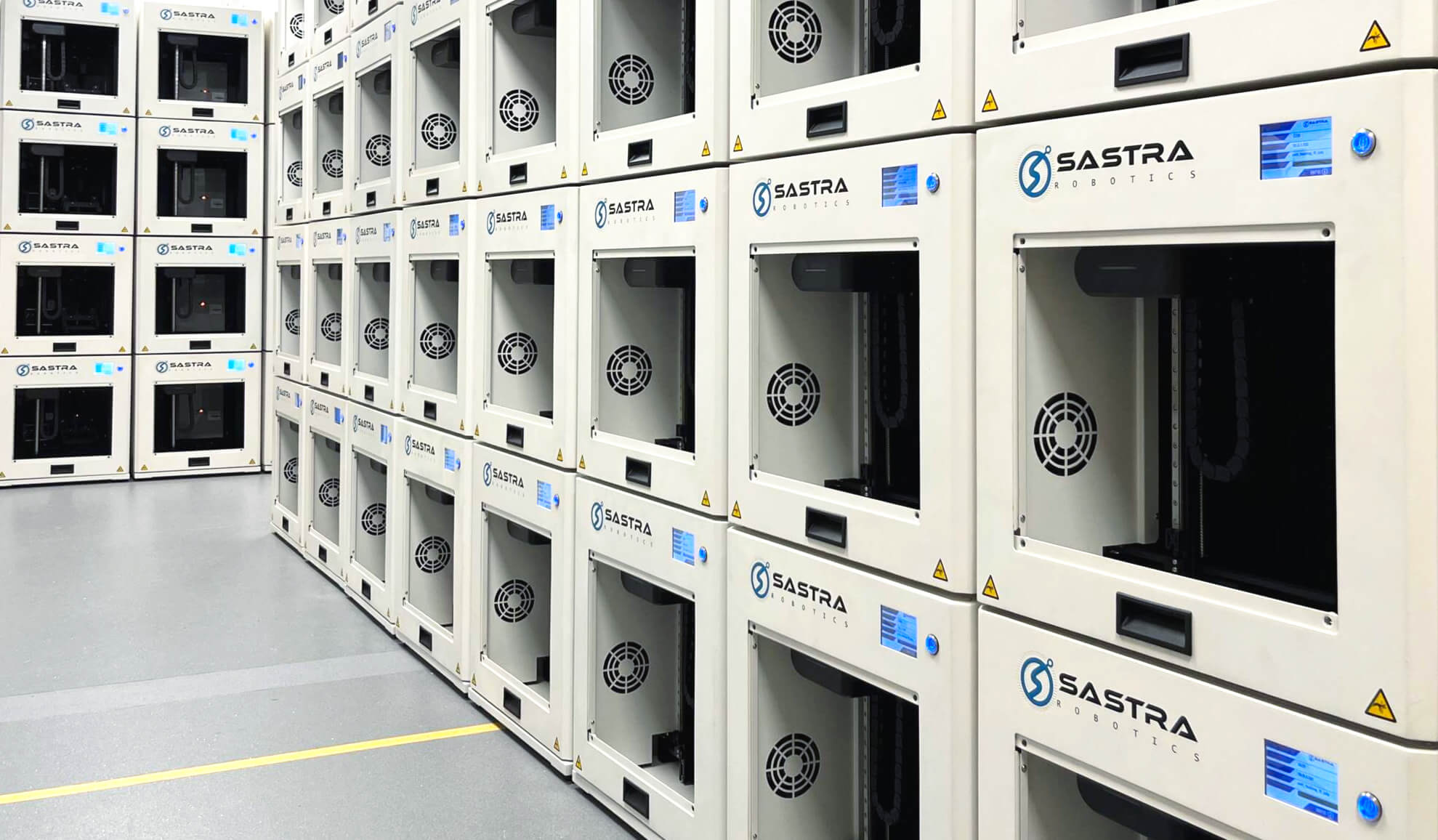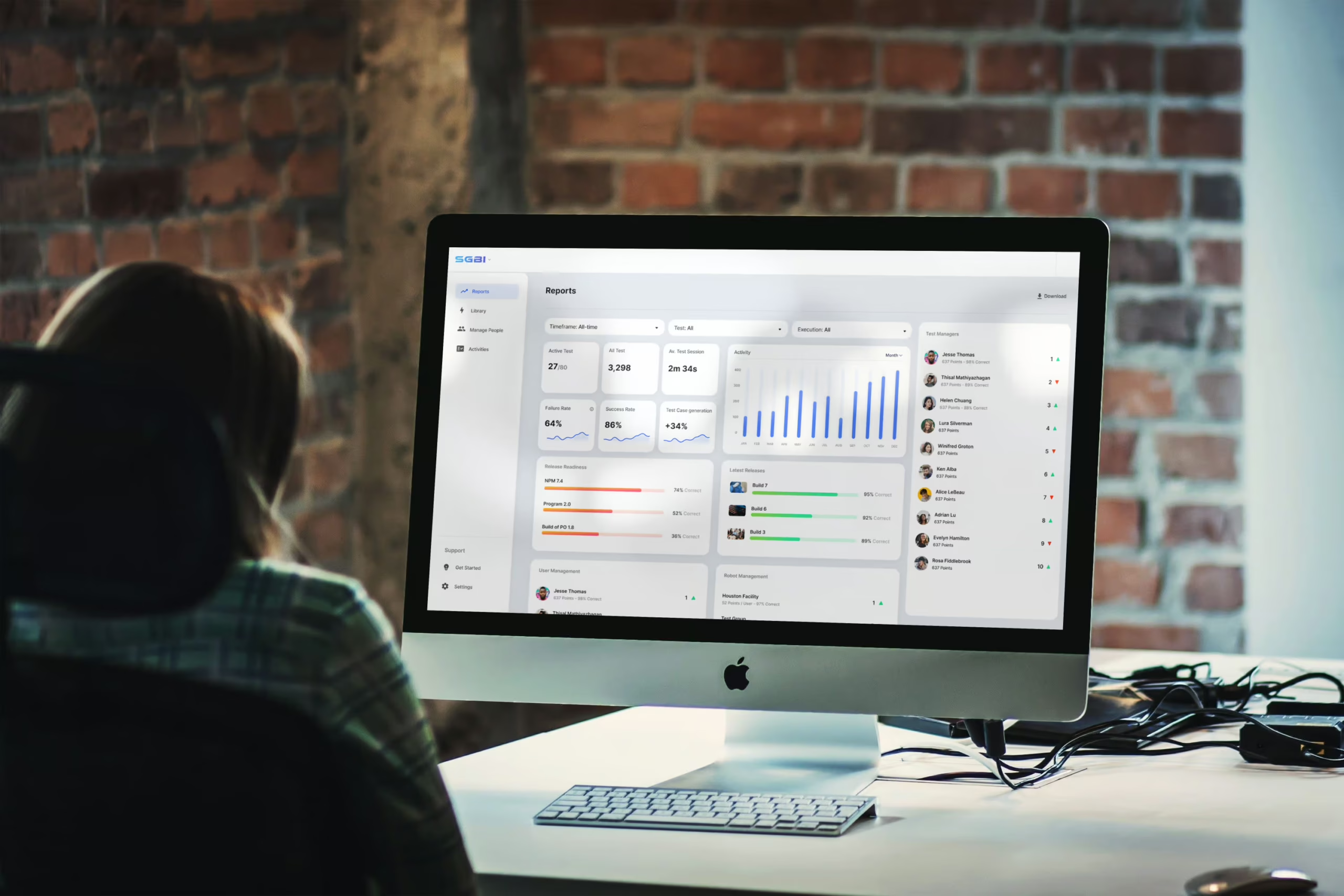In today’s mobile-centric world, the stakes for delivering high-quality mobile apps have never been higher. A study by Dotcominforway found that 29.6% of app uninstalls are due to security/privacy issues, while 62% are attributed to crashes, freezes, or errors. These statistics show the critical importance of rigorous mobile app testing.
Market Growth: Mobile apps have become integral to our daily lives, from banking and shopping to entertainment and communication. The global mobile app market is estimated to be worth $6.77 billion in 2024 and expected to reach $31.99 billion by 2034 with a compound annual growth rate (CAGR) of 16.8% between 2024 and 2034, reflecting the increasing reliance on mobile devices. This growth has fueled the demand for high-quality mobile apps, making effective testing more essential than ever.
Traditional testing methods often fail to address the complexities of modern mobile app development & testing processes. Robotic device testing cloud farms offer a revolutionary solution to these challenges. By providing access to a vast array of real devices and automating the testing process, these platforms enable developers and testers to ensure their apps deliver a seamless user experience across a wide range of devices and operating systems.
Testing Challenges: The mobile app testing landscape is complex and ever-evolving. Some of the key challenges faced by developers and testers include:


- Device Fragmentation: The vast array of devices, screen sizes, and operating systems (iOS, Android, Windows) creates a diverse testing environment. Ensuring compatibility across multiple platforms can be time-consuming and resource-intensive.
- Diverse Operating Systems: Different operating systems have unique features, APIs, and behaviours, making it necessary to test apps on each platform to identify potential issues.
- Real-World Scenarios: Testing apps under real-world conditions, such as low battery, poor network connectivity, and multitasking, is crucial to ensure optimal performance and user experience.
- Rapid Development Cycles: The fast-paced nature of mobile app development often requires frequent updates and new features, making it challenging to keep up with testing demands.
Limitations of Traditional Testing Methods
Emulators and Simulators: While emulators and simulators provide a convenient way to test apps on different devices and platforms, they often fail to replicate real-world conditions accurately. These tools are typically run on virtual machines or software environments, which can introduce discrepancies in hardware behaviour, performance, and interactions. As a result, emulators and simulators may not uncover issues that arise in real-world usage scenarios.
Manual Testing: Manual testing, while essential for certain aspects of quality assurance, can be time-consuming, error-prone, and difficult to scale. Manual testers must manually execute test cases, record results, and identify defects. This process is labor-intensive and can be prone to human errors, such as missed test cases or incorrect data.
Introducing Robotic Device Testing Cloud Farms
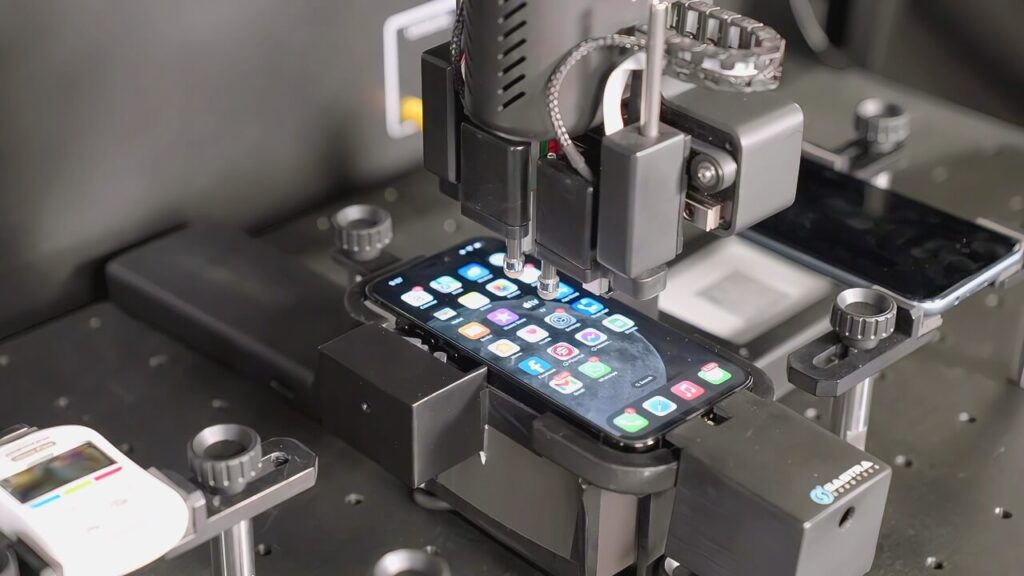
A Robotic Device Testing Cloud Farm is a centralized infrastructure that provides access to a vast array of real mobile devices for testing purposes. These farms utilize physical devices, operated by robotic arms, to simulate real-world usage scenarios. By accessing these cloud-based farms, developers and testers can efficiently test their apps across a wide range of devices and operating systems.
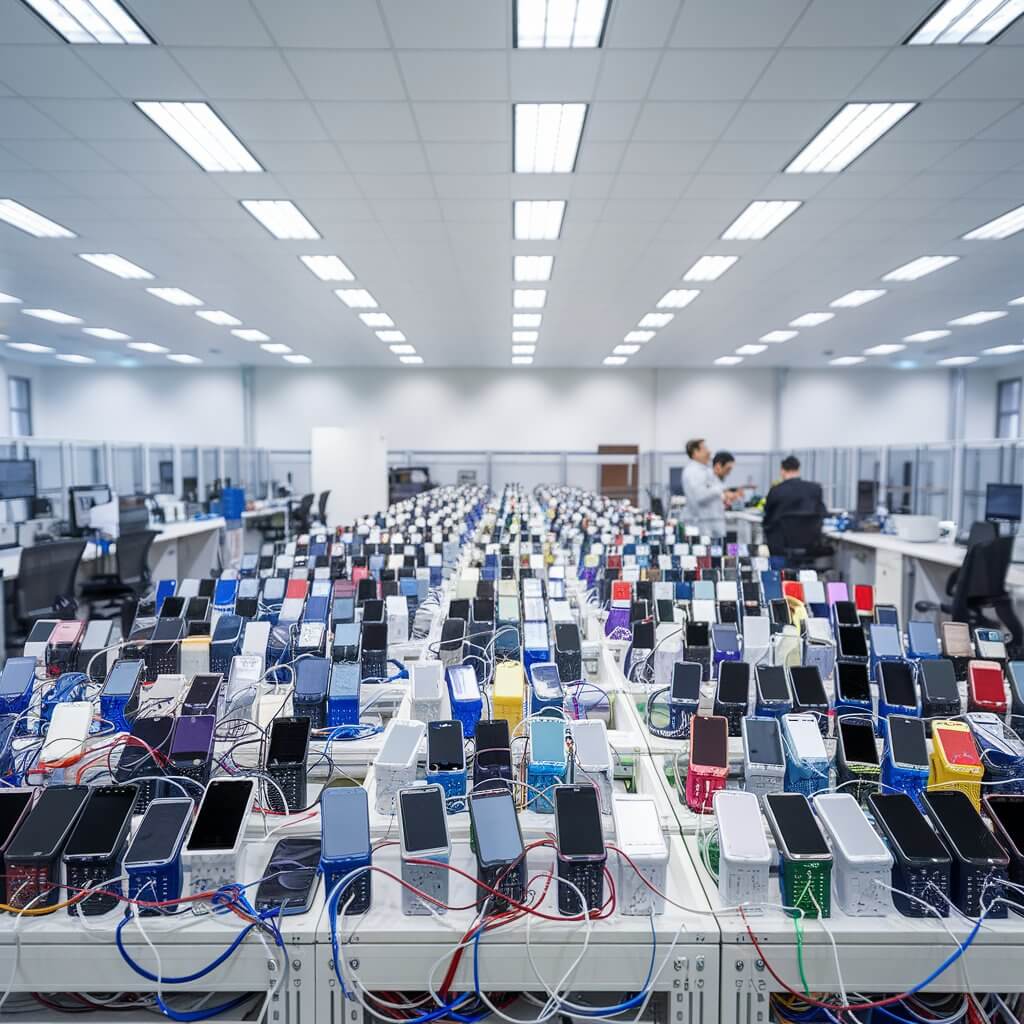

Robotic device testing cloud farms offer several significant advantages:
- Scalability: These platforms can easily be scaled up or down to meet changing testing needs. Organizations can quickly add or remove devices from the farm, ensuring access to the latest models and configurations.
- Cost-Effectiveness: By eliminating the need for organizations to purchase and maintain their own device fleets,cloud-based farms can significantly reduce testing costs. Additionally, these platforms often offer flexible pricing models, such as pay-as-you-go or subscription-based plans.
- Improved Test Coverage: Robotic device testing cloud farms provide comprehensive test coverage by enabling testing across a diverse range of devices, operating systems, and network conditions. This helps identify issues that may be missed using traditional testing methods.
- Automation: The use of robotic arms allows for automated testing, reducing the time and effort required for manual testing. This enables faster testing cycles and improved efficiency.
- Real-World Conditions: By simulating real-world usage scenarios, robotic device testing cloud farms can help identify issues that may not be detected using emulators or simulators.
Quaco Vertix: The Backbone of Secure Test Cloud Farm
Quaco Vertix is a cutting-edge robotic platform designed specifically for creating test labs. It features a highly versatile robotic arm that can accurately manipulate and interact with various mobile devices. Quaco Vertix offers precise control over device movements, ensuring reliable and consistent testing results.
Scalability: One of the key advantages of Quaco Vertix is its scalability. Multiple Quaco Vertix units can be stacked together to form large-scale testing farms, accommodating a wide range of devices and testing scenarios. This flexibility allows organizations to easily expand or reduce their testing infrastructure as needed.
Security: Our cloud infrastructure incorporates robust security measures to protect your sensitive information. These measures include:
- Data Encryption: All data transmitted between your devices and our cloud platform is encrypted using industry-standard protocols.
- Access Controls: We implement strict access controls to restrict unauthorized access to your testing data.
- Regular Security Audits: Our infrastructure undergoes regular security audits to identify and address potential vulnerabilities.
- Compliance: We adhere to industry-standard security frameworks and compliance regulations, such as GDPR and HIPAA.
The Quaco Studio Cloud
Our Quaco Studio Cloud platform is designed with user-friendliness in mind, providing a clean and intuitive interface. The platform’s dashboard offers a centralized view of your testing projects, devices, and reports. Navigation is straightforward, allowing users to easily access the necessary tools and information.
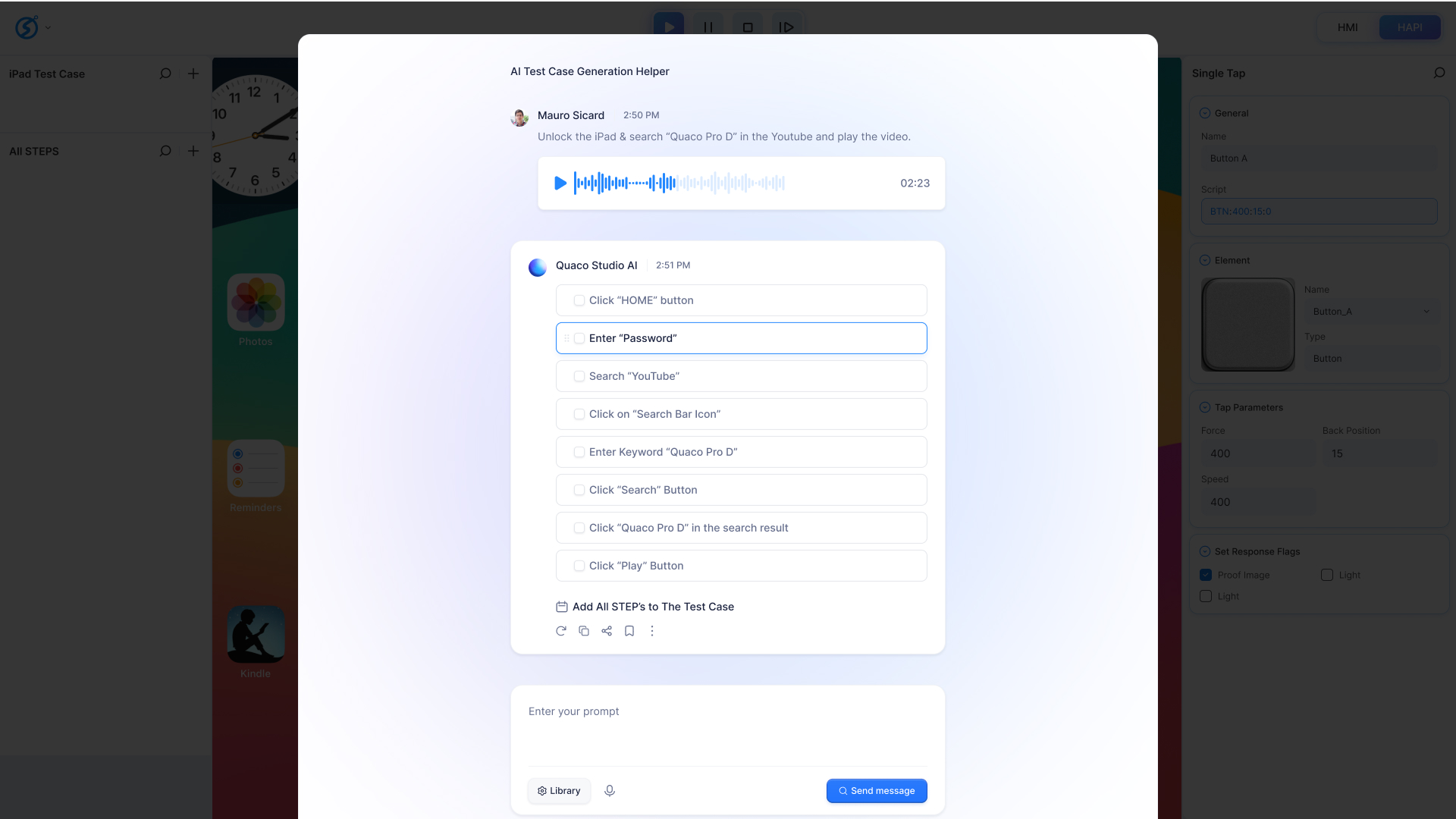
Key Features: The Quaco Studio Cloud platform offers a comprehensive set of features to streamline the mobile testing process:
- Test Script Creation: Users can create and manage test scripts using a variety of methods, including manual scripting, recording, and AI-based generation. The platform supports various scripting languages and frameworks, providing flexibility for different testing needs.
- Device Selection: The platform allows users to select the specific devices they want to include in their testing projects. Users can filter devices based on criteria such as operating system, screen size, and hardware specifications.
- Test Execution: Once test scripts are created and devices are selected, users can initiate test execution. The platform automatically deploys test scripts to the chosen devices and monitors the test progress.
- Reporting: The Quaco Studio Cloud platform generates detailed test reports that provide insights into test results, performance metrics, and identified defects. These reports can be customized to meet specific reporting requirements and can be easily integrated into your existing development pipeline.
AI-Powered Test Script Generation: To further enhance efficiency and reduce manual effort, our platform incorporates AI-based test script generation. Users can simply describe their desired test scenarios in natural language, and our AI algorithms will automatically generate corresponding test scripts. This feature accelerates the testing process and reduces the need for extensive scripting expertise.
The Future of Mobile Testing
Emerging Trends: The mobile app landscape is constantly evolving, with new technologies and trends emerging. Some of the potential future directions for mobile testing include:
- IoT Integration: As the Internet of Things (IoT) continues to grow, mobile apps will increasingly interact with IoT devices and sensors. Testing these interactions will require specialized tools and techniques to ensure compatibility and security.
- Augmented Reality (AR): AR apps present unique testing challenges due to their reliance on real-world environments and device sensors. Ensuring accurate rendering, performance, and user interactions will be crucial for successful AR app development.
- 5G Networks: The rollout of 5G networks will introduce new testing considerations, such as higher bandwidths, lower latency, and increased connectivity. Testing apps on 5G networks will be essential to ensure optimal performance and user experience.
The Role of Robotic Testing Cloud Farms
Robotic device testing cloud farms will continue to play a pivotal role in addressing the evolving challenges of mobile app testing. These platforms offer a scalable, efficient, and reliable solution for ensuring app quality across a diverse range of devices and scenarios.
Key benefits of robotic testing cloud farms:
- Comprehensive Device Coverage: Access to a wide range of devices, including the latest models and operating systems, to ensure compatibility and performance across different platforms.
- Automated Testing: Robotic arms can automate repetitive tasks, reducing manual effort and accelerating testing cycles.
- Real-World Simulations: Simulate real-world usage scenarios, such as low battery, network fluctuations, and multitasking, to identify potential issues that may not be detected by traditional testing methods.
- Scalability: Easily expand or reduce the number of devices on the farm to meet changing testing needs.
- Integration with CI/CD Pipelines: Seamlessly integrate robotic testing into your continuous integration and continuous delivery (CI/CD) workflows.
As mobile app development continues to evolve, robotic testing cloud farms will remain essential tools for ensuring the quality, performance, and user experience of mobile applications.

